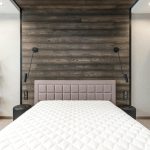Essential Planning for a Multifunctional Room
Careful multifunctional room planning UK begins with identifying the primary and secondary functions the space must serve. For example, a room that acts as both a home office and guest bedroom requires distinct zones that accommodate work tasks and comfortable sleeping arrangements. Considering UK home design norms, typical room sizes are often compact, so assessing dimensions and potential rental restrictions early ensures compliance and feasible layouts.
Natural light is a critical factor influencing room usability; orienting activity zones near windows enhances ambience and productivity. Additionally, the placement and number of electrical outlets must be evaluated to support technology needs and lighting without trailing wires, promoting safety and convenience. Traffic flow plays a vital role: ideally, pathways remain unobstructed to allow seamless transitions between functions without rearranging furniture constantly.
Additional reading : What Are the Most Popular Flooring Options for UK Homes?
Combining these considerations forms the backbone of effective room layout ideas. For example, positioning a desk near a window with outlets, while allocating opposite corners for relaxation or storage, balances practicality with comfort. This strategic planning phase maximises potential in UK homes where space efficiency is key, ensuring the multifunctional room is both functional and inviting for everyday use.
Smart Furniture Selection and Flexible Layouts
Selecting the right multifunctional furniture UK is crucial to optimise often limited UK spaces. Convertible pieces like sofa beds serve dual purposes, providing seating by day and sleeping options by night. Foldable desks are equally valuable, folding away neatly to create open floor space when not in use. Nesting tables add versatility, offering adjustable surfaces that expand or contract according to need.
Also to see : How can you maximize natural light in a UK home?
Flexible room layouts enhance transitions between activities. For example, positioning a sofa bed opposite a foldable desk allows the room to easily switch from lounge to workspace or guest bedroom. This adaptability aligns with UK home design norms, where compact dimensions demand space-efficient solutions.
When planning these layouts, priority should be given to manoeuvrability. Furniture that is lightweight or equipped with caster wheels facilitates repositioning without hassle. Considerations also include access to natural light and electrical outlets, ensuring that functional zones remain practical.
Many retailers specialised in multifunctional furniture UK focus on design that balances style with clever utility. Exploring UK suppliers makes it easier to find items tailored to domestic spatial constraints and aesthetic preferences. Embracing these smart furniture choices fosters an environment that smoothly accommodates diverse uses without overcrowding.


